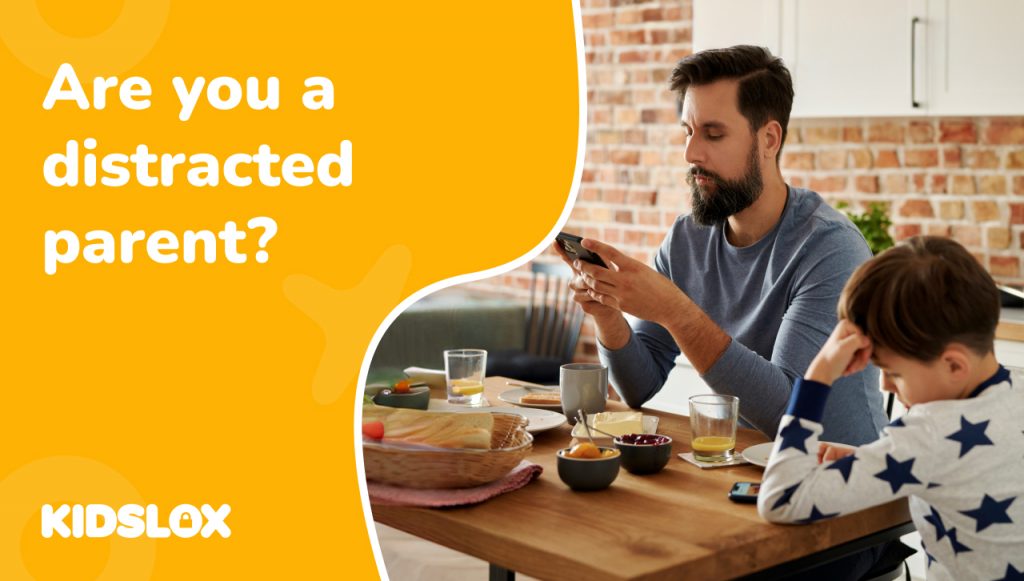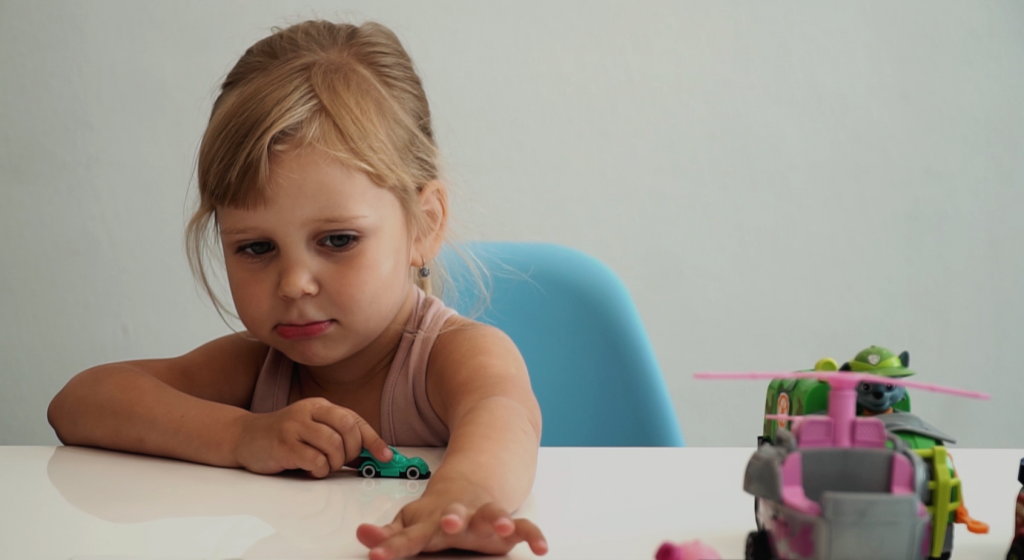Is it their screen time or ours that we should worry about?
If we’re honest, most of us would really struggle without our smart phone. Digital devices have become such an integral part of our lives that it’s almost impossible to imagine functioning without one.
Social media is designed to be addictive with its algorithms that keep us scrolling and notifications that snatch our attention, and its omnipresence in our pocket means it’s always there when we’re feeling like we need a little break from the kids’.
But, how much is too much? And, does checking your phone around your children set a bad example? In this Guide To, we explore the phenomenon of distracted parenting, its impact on our relationship with our children, and simple strategies to achieve a better balance with our devices.
What is distracting parenting? A very modern problem
Imagine this; you’re at the playground and your child asks to be pushed on the swings. You’re doing it, but you’re checking your social media feeds while you play. In a moment that was designed to be shared, the distraction breaks the opportunity to socialise – and model – healthy socialisation behavior to your child.
Whether it’s at the dinner table or during family outings, the lure of digital devices can be hard to resist. Actively engaging with children takes effort, and it can sometimes be tedious for adults to do for long periods (let’s be honest!). But this behavior sends a powerful message to children: that they are less important than whatever is happening on the screen. Over time, this can have an impact on the relationship you have with your child, their behavior and their reading of social situations and cues.
Why Do My Parents Ignore Me?
Children are acutely aware of their parents’ divided attention. They may not understand the complexities of adult responsibilities and the digital world, but they do recognize when they feel unseen or unheard.
The need for human connection starts from birth. As babies grow and develop their neural pathways are forged by the social feedback they receive from their caregivers. And, as they continue through infancy, those bonds continue to strengthen and develop as they learn about the world around them. The impact of distracted parenting has been causing concern for researchers for a number of years. Scientists have cited the need for further exploration, and in the case of infants, even the impact that smartphone use might have on breastfeeding babies who don’t have access to their mothers’ gaze.
As children get older, they need to have access to caregivers’ attention to help regulate their emotions. If parents are distracted on their devices, they miss vital opportunities to receive feedback on their emotions and behavior that will help with healthy development.
For teens and older children, behavioral issues might arise from distracted parenting as adolescents need the opportunity to have open and non-judgemental dialogue with their parents. If we are distracted on our phones, it’s also very difficult to model and expect responsible technology use from our teenagers, who follow our lead.
One researcher, Brandon McDaniel – Human Development and Family Science Professor at Illinois State University calls the phenomenon of distracted parenting, ‘technoference’ and has been studying the concept for over a decade. In some of his research, McDaniel found that the more parents showed signs of distraction, the worse the behavior of their kids. This then spiralled, with parents reaching for their devices more often to mitigate the stressful impacts of the children’s behavior.
How else does distracted parenting impact on childrens’ wellbeing?
Children test us, and parenting is a proactive job. It’s essential to set expectations and boundaries to enable healthy development. When parents are distracted, they’re more likely to snap. This is something echoed in research from Boston State University, which showed that parents using devices were more likely to respond harshly to a child’s behavior.
Being engrossed in your smartphone around the kids, whether it’s for work or social media, means that you will inevitably miss out on the cues that your child’s behavior is escalating and opportunities to nip it in the bud in a positive way. This zero-to-100 style of response means that children may act out more, and have a negative effect on your relationship as your behavior is unpredictable to them.
Beyond behavioral issues, distracted parenting presents the obvious dangers. In fact, research showed that when 3G networks were initially introduced, there was a spike in children’s ER visits, leading some to believe that the increased accessibility of the internet was responsible for more accidents.
Digitally Distracted Parents: Breaking the Cycle
Unless you live a tech-free existence, you’re likely to recognize some of these behaviors in your own home. Without awareness of the issue, it’s hard to stop it – especially with the omnipresence of technology and how normalised checking our smartphones has become. Recognizing the signs of distracted parenting is the first step towards addressing the issue and taking positive steps to be as present as possible for your kids.
We could all benefit from tech-free time, and here are some practical strategies to help you achieve it in your own family.
- Set Boundaries (and stick to them!): Establish specific times and places where phone use is restricted. For example, implement a “no phone” rule during meals, family outings, and bedtime routines. This helps create dedicated periods for meaningful interaction. This only works if the whole family does it, and parent’s don’t get a pass!
- Prioritize Quality Time: Schedule regular quality time with your children without any digital distractions. Engage in activities that encourage bonding, such as playing games, reading books, or simply talking about their day. This doesn’t have to be all day every day, but making a conscious commitment to it means you’re more likely to be aware of when the lure of the phone starts creeping in.
- Lead by Example: Children often mimic their parents’ behavior and model us and our examples. By demonstrating healthy digital habits, parents can set a positive example. Show your children that real-life interactions take precedence over virtual ones and encourage their interests outside of technology too.
- Use Technology Wisely: Leverage technology to enhance, rather than detract from, your parenting. Use apps that promote educational content or facilitate family activities. However, always ensure that screen time is balanced with offline interactions. Kidslox can help set schedules and reminders when it’s time to put the phone down.
- Be Mindful of Your Usage: Pay attention to how often and why you reach for your phone. If you find yourself habitually checking your device out of boredom or stress, try to find alternative ways to cope, such as taking a walk, practising mindfulness or reaching for a book. Having easy to reach, non-tech coping mechanisms available means you’re less likely to reach for the easy entertainment of your device.
- Communicate with Your Children: Open a dialogue with your children about the importance of quality time and the reasons behind reducing phone usage. This can help them understand the value of real-world interactions and feel more involved. Kids are great at reminding you how to behave too, so let them know they can nudge you for added accountability!
All too often, the smartphone is your easiest mode of distraction. Always around, and instantly accessible, it’s very hard to ignore it. We all know that parenting isn’t easy, and having young children can be especially hard. Having access to social connections in your pocket or the distraction of emails or games can be very tempting. It’s important not to punish yourself too. Smart phones can also be a force for good – it’s about recognizing the dangers of distracted parenting and being aware of when you’re prioritizing your device over your kids’ emotional and behavioral needs.
As our digital landscape continues to evolve, smartphones are likely to be with us for the long haul and the horizon is full of more scary integrated technology innovations that threaten to further distract us from our human connections. Recognizing the need for balance that allows for the benefits of technology while safeguarding the emotional and developmental needs of children is more important than ever.
By becoming aware of the impact of their digital habits and making a conscious effort to prioritize their children, parents can foster a nurturing and supportive environment. In doing so, they not only strengthen the parent-child bond but also set the foundation for their children’s future well-being and success.
Distracted parenting is a call to action for all parents to reassess their relationship with technology. By choosing to be more present and engaged, parents can ensure that their children receive the attention and care they deserve, ultimately leading to healthier, happier families.





